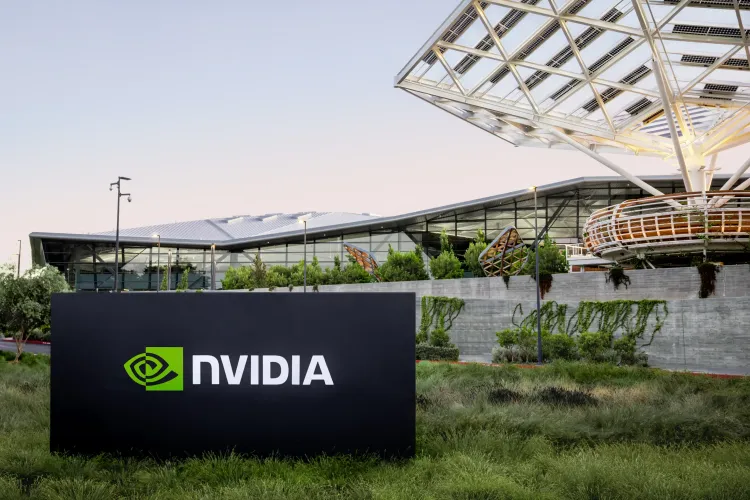Impact of US Restrictions on Nvidia Chips on South Korean Semiconductor Firms

Synopsis
Key Takeaways
- Limited Impact on South Korean semiconductor firms.
- SK hynix focuses on 12-layer HBM3E technology.
- Existing contracts for H20 chips protect revenue.
- Nvidia expects a $5.5 billion charge.
- Concerns over the potential slowdown in China’s AI chip market.
Seoul, April 16 (NationPress) Experts have indicated that South Korean semiconductor companies will likely experience minimal impact from the recent US export restrictions on Nvidia’s H20 artificial intelligence (AI) accelerators to China.
Nvidia has announced that it has been informed by US authorities that a license is now required for the export of its H20 chips to China indefinitely, as reported by Yonhap news agency.
The H20 accelerators represent the most advanced AI chip that Nvidia can still export to China, given the current US export ban on high-performance AI chips.
SK hynix provides its eight-layer HBM3E, which is the fifth-generation high bandwidth memory (HBM), for the H20 chips, whereas Samsung Electronics Co. does not supply HBM for this specific chip.
Industry experts believe that the new regulations are unlikely to have a significant short-term impact on South Korean semiconductor companies, as SK hynix is currently concentrating on its latest 12-layer HBM3E, a crucial component for high-performance AI chips aimed at markets outside of China.
Furthermore, SK hynix has already completed its HBM sales contracts for the H20 chips, meaning that the new export restrictions will not affect its financial performance, according to experts.
Nvidia anticipates a $5.5 billion charge due to the new regulations affecting its H20 chip exports to China, resulting in a nearly 6 percent drop in Nvidia shares during after-hours trading.
Chae Min-sook, a researcher at Korea Investment & Securities Co., stated, "SK hynix completed additional sales of HBM for H20 in March, so it will not experience inventory write-downs like Nvidia. We believe that these sanctions will not alter SK hynix's annual HBM production goals or its profit forecasts."
While the immediate effect on South Korean chipmakers seems limited, industry insiders are expressing worries about a potential slowdown in the Chinese AI chip market, which had recently seen growth due to low-cost AI models from companies like DeepSeek.
"Even though the US restrictions have no direct impact, they might reduce momentum in the AI chip sector and restrict future prospects," an official at a South Korean semiconductor company noted. "This has also heightened uncertainty and concerns regarding the industry's future outlook."
Shares of SK hynix and Samsung Electronics dropped by 3.65 percent and 3.36 percent respectively on the Korea Composite Stock Price Index, which fell 1.21 percent.










